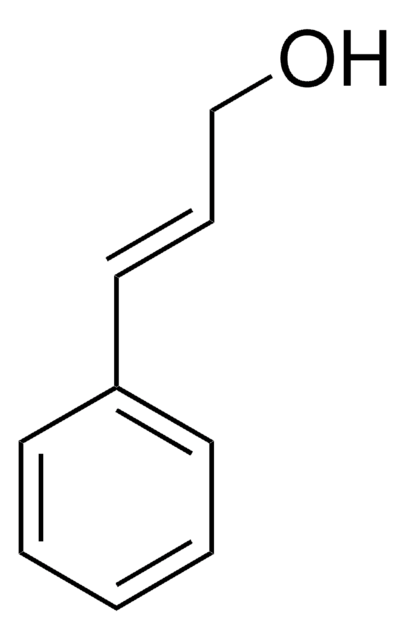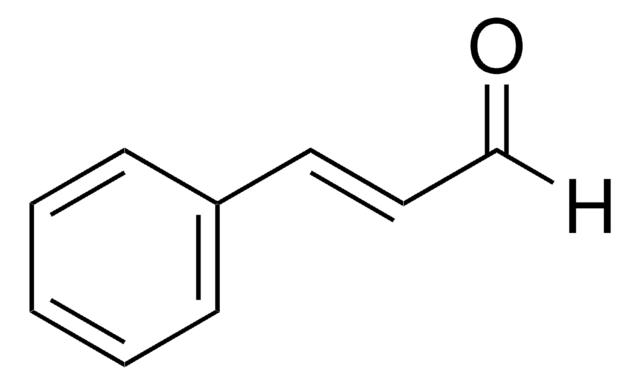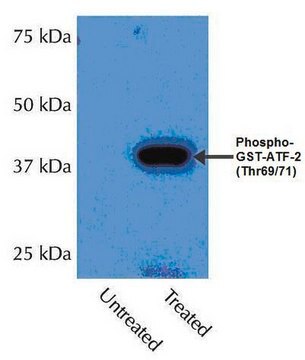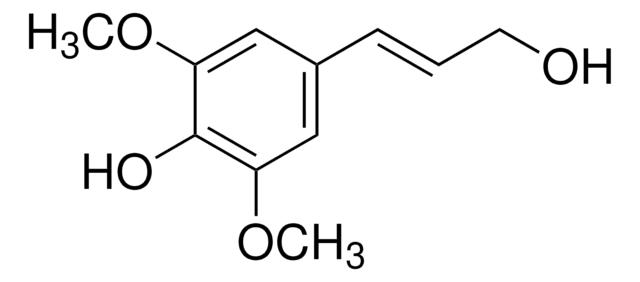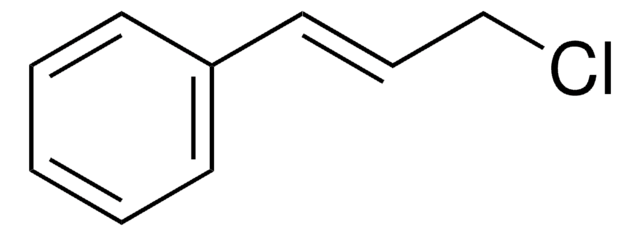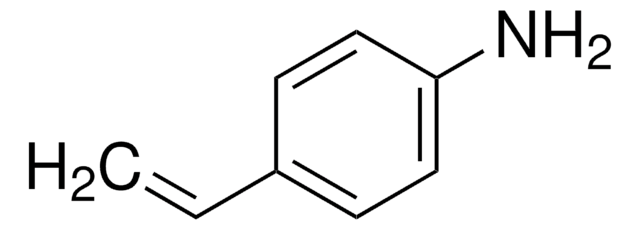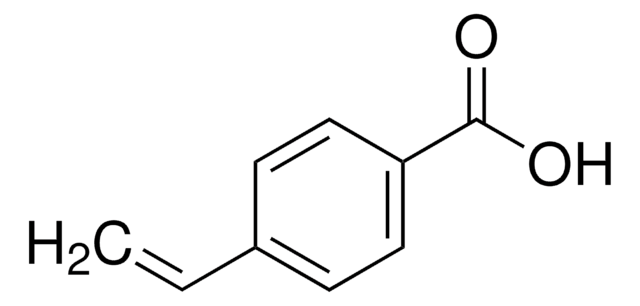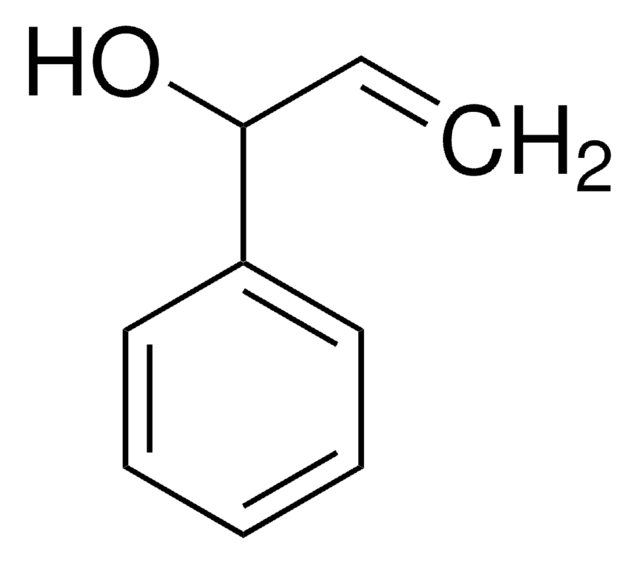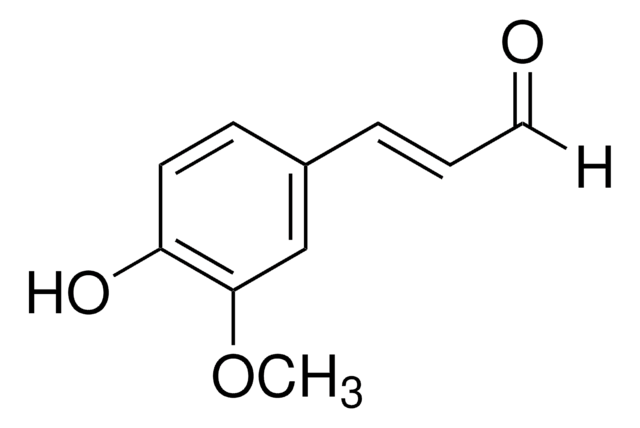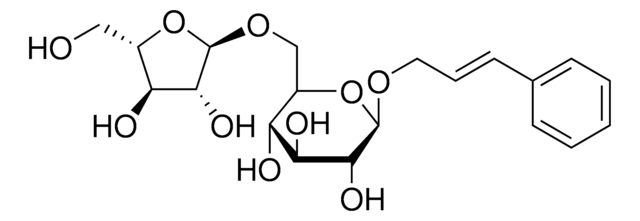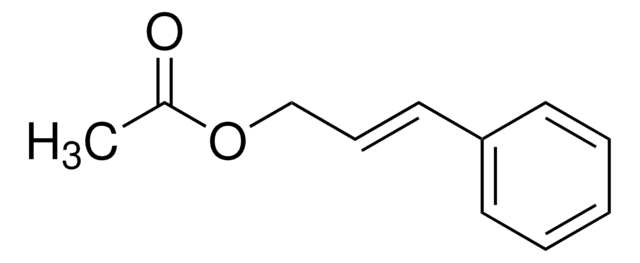108197
Cinnamyl alcohol
98%
Synonym(s):
3-Phenyl-2-propen-1-ol
About This Item
Recommended Products
vapor density
4.6 (vs air)
Quality Level
vapor pressure
<0.01 mmHg ( 25 °C)
assay
98%
form
liquid
bp
250 °C (lit.)
mp
30-33 °C (lit.)
solubility
H2O: soluble
alcohol: freely soluble
diethyl ether: freely soluble
glycerol: soluble
organic solvents: freely soluble
density
1.044 g/mL at 25 °C (lit.)
SMILES string
OC\C=C\c1ccccc1
InChI
1S/C9H10O/c10-8-4-7-9-5-2-1-3-6-9/h1-7,10H,8H2/b7-4+
InChI key
OOCCDEMITAIZTP-QPJJXVBHSA-N
Looking for similar products? Visit Product Comparison Guide
Related Categories
General description
Application
signalword
Warning
hcodes
Hazard Classifications
Acute Tox. 4 Oral - Aquatic Chronic 2 - Skin Sens. 1
Storage Class
10 - Combustible liquids
wgk_germany
WGK 2
flash_point_f
258.8 °F - closed cup
flash_point_c
126 °C - closed cup
ppe
dust mask type N95 (US), Eyeshields, Faceshields, Gloves
Certificates of Analysis (COA)
Search for Certificates of Analysis (COA) by entering the products Lot/Batch Number. Lot and Batch Numbers can be found on a product’s label following the words ‘Lot’ or ‘Batch’.
Already Own This Product?
Find documentation for the products that you have recently purchased in the Document Library.
Customers Also Viewed
Our team of scientists has experience in all areas of research including Life Science, Material Science, Chemical Synthesis, Chromatography, Analytical and many others.
Contact Technical Service